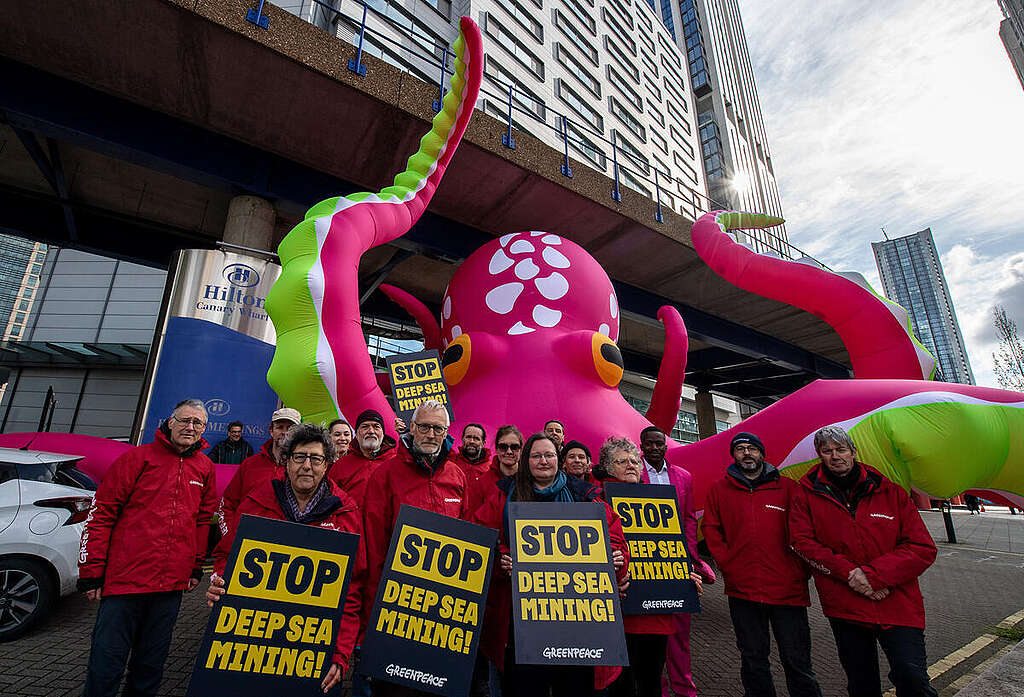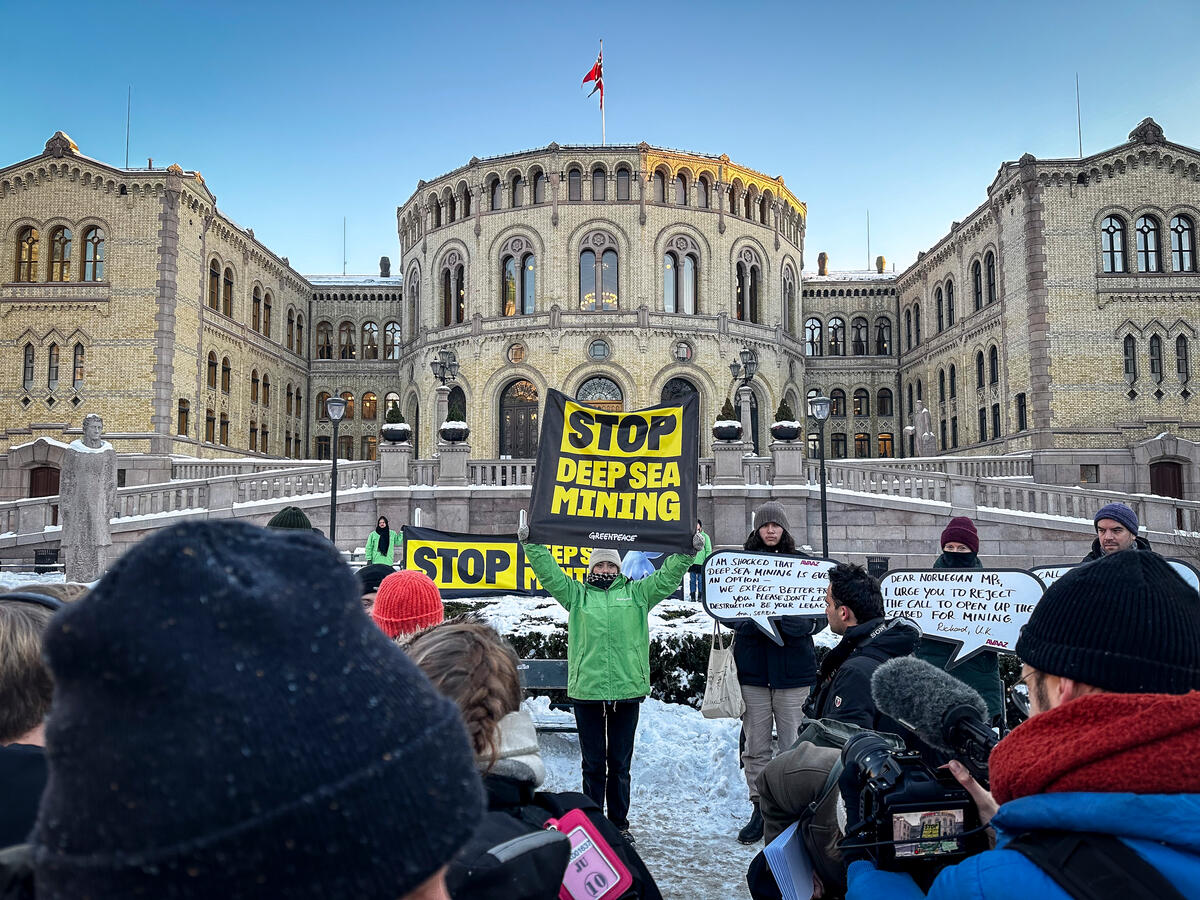200 to over 10.000 meters below the surface - is one of Earth's last untouched frontiers, but it is under threat from a nascent industry: deep sea mining. Some countries and corporations are racing to extract metals and minerals like cobalt, nickel, manganese, copper from the seabed, pretending that those minerals are needed for a clean energy transition. As if it was not enough to plan to destroy fragile ecosystems, some deep sea mining companies are now marketing deep sea minerals as necessary to strengthen military power, exacerbating geopolitical tensions between world superpowers with worrying implications for global peace and stability.
Deep sea mining: a new arms race?
Until very recently, the industry has attempted to justify its existence on the greenwash argument that deep sea mining is a necessary evil for the energy transition. In other words, they claim destroying the extremely fragile deep sea ecosystem that we barely understand will somehow help win the battle against climate change. But day after day, new scientific evidence suggests that the metals from the seabed are not needed and that the damage could be irreversible.
Twenty-five governments have already either rejected deep sea mining or called for a much more cautious approach, and the industry's political play is failing. In a high-risk pivot, mining companies are now trying to convince investors and decision makers by telling the world that the minerals from the seafloor are paramount for military purposes. Deep sea mining must be stopped before it starts to prevent further environmental destruction, further stockpiling of weapons and fomenting of conflict.

The deep sea mining industry fanning the flames of the geopolitical crisis to justify its existence?
Companies driving the development of deep sea mining are guilty of greenwashing and hypocrisy. Some of them have been lobbying at the International Seabed Authority, and beyond, to get a greenlight to start deep sea mining commercial operations, especially the Canadian-based frontrunner, The Metals Company (TMC).
TMC seems willing to say whatever it thinks will help it make a profit off plundering the deep sea. One moment, TMC will pretend to care about the planet by pushing the baseless claim that metals mined from the deep sea are essential for the clean energy transition. Then, it'll be openly supportive of calls to develop deep sea mining in order to strengthen US military capabilities. Minerals, like those found in the seabed, are highly sought out by weapon companies and are increasingly in use for military purposes (for example, in advance weapon systems and laser precision-guided weapons).

In addition to that, the Norwegian company, Kongsberg, a cornerstone investor in the deep sea mining company Loke and strategic partner of The Metals Company, is the world's leading provider of Remote Weapon Systems. Kongsberg has demonstrated a direct and deep interest in deep sea mining equity, technology research and development.
The race to weaponize the metals and minerals of the deep ocean would have disastrous consequences for people and the planet, fuelling environmental destruction and threatening world peace and stability. The deep ocean must be protected, not exploited, to avoid fuelling wars which will cause untold human suffering. Join us to stop deep sea mining before it starts.
Maud Oyonarte is the global digital lead for the Greenpeace International Stop Deep Sea Mining campaign, employed by Greenpeace France, based in Paris (France).






